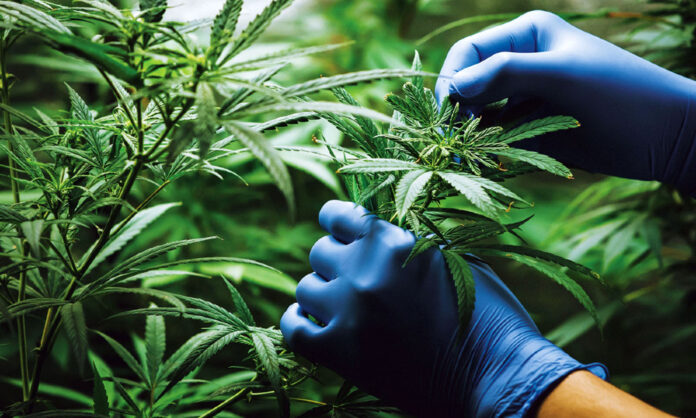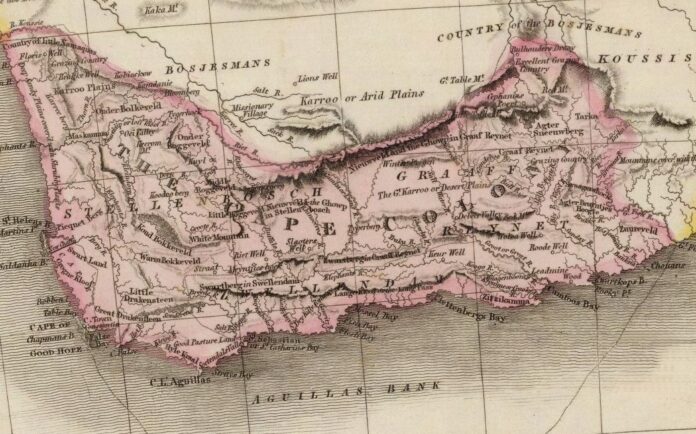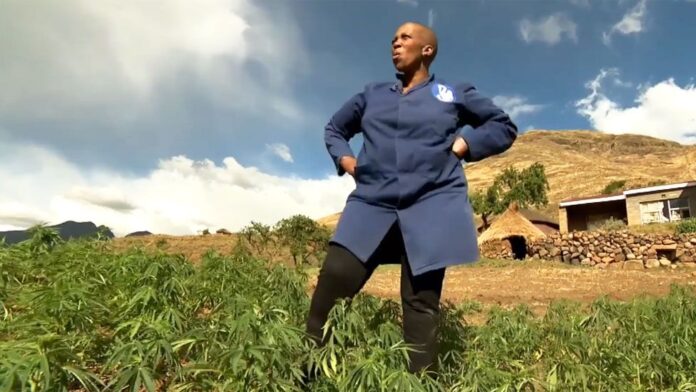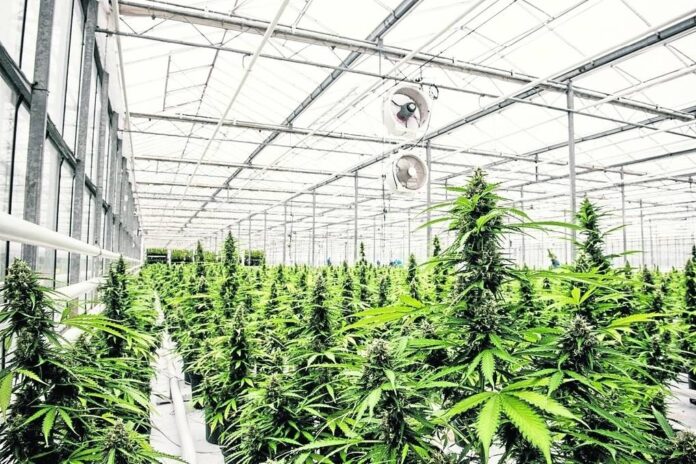
Lesotho, a small landlocked country in southern Africa, has emerged as a leader in medical cannabis cultivation and exportation to international markets. The country’s ideal climate for cultivation, coupled with its forward-thinking regulatory environment, has made it an attractive destination for companies looking to produce high-quality medical cannabinoid products for global markets.
Before we dive into the cannabis industry let’s first place the background facts, and try to answer where did Lesotho emerge from and how come the colonial histories of South Africa and Lesotho are to blame for this unusual circumstance in which one nation is completely encircled by another and has no direct access to the outer world.
Well, the Boers who were originally Dutch colonists in South Africa but were no longer under Dutch control, threatened Basutoland, as modern Lesotho was called, by claiming territory in the area starting in the 1830s.
In response, the British in control of Cape Colony, the colony that would eventually become South Africa, signed a treaty in 1843 recognizing Basotho as an ally. Anglo-Basotho relations were temporarily soured by a skirmish in 1854, but they were quickly repaired after the Boers established the Orange Free State.
When the Boers besieged the capital’s mountain bastion, Thaba Bosiu, hostilities erupted in 1865. In response to King Moshoeshoe’s pleas, the British consented to designate the nation as a protectorate. Therefore, unlike the rest of South Africa, the area came under British control through diplomatic agreement rather than through war or settlement.
Mismanagement led to a rebellion in 1880–1881 and an appeal for direct rule from London, which was approved in 1884. Previously, the territory was governed by Cape Colony. As a result, South Africa and Lesotho, which were both under British authority, were managed independently.

In turn, this meant that Lesotho stayed independent and was under British rule rather than South African rule when South Africa was made a dominion in 1910 and later given equality with the other dominions and Britain in 1931. Lesotho became a sovereign nation in 1966 when it attained freedom.
Cannabis has been grown and used in Lesotho for centuries, with a long history of traditional and medicinal use. In the early 20th century, the colonial government of Lesotho introduced laws to restrict cultivation and use, which drove the industry underground. However, in recent years, the government has taken steps to legalize and regulate the cultivation and export of medical cannabis.
In 2017, the government passed the Medical Cannabis Regulations, which established a framework for the cultivation and processing of products for medical and scientific purposes.
Since then, the industry in Lesotho has experienced significant growth, with international companies investing in the country’s fertile soils and ideal climate for cultivation. Today, Lesotho is becoming known for its high-quality medical cannabinoid production, and the industry is seen as a key driver of economic growth in the country.
One example of a successful cannabis production facility in Lesotho is owned by WeGROW, which began operations in 2020. Its state-of-the-art facility uses the latest agro-technology to produce high-quality medical cannabinoid products that meet the strict requirements of international pharma markets. The company has already gained a reputation for producing some of the highest quality in the world.
WeGROW has already made significant strides in exporting medical cannabis products to international markets. The company has successfully exported its products to Israel and Germany, two countries with strict regulations governing the import and sale of medical cannabis products.
Lesotho’s regulatory environment is one of the key factors that have contributed to the success of companies. As mentioned before, in 2017, the Lesotho government became one of the first countries in Africa to legalize the cultivation and production of medical cannabis. The government has also been proactive in establishing a regulatory framework that provides clear guidelines for companies looking to enter the medical industry in Lesotho.
The government has also established the Lesotho National Development Corporation (LNDC) to provide support and guidance to companies looking to invest in the country. The LNDC has played a key role in attracting foreign investment to Lesotho’s medical cannabis industry, and it has also helped to ensure that companies have the support they need to succeed in the global market.
Also one of the main benefits of the cannabis industry is the potential for job creation. The industry is labor-intensive, and cultivation and processing can provide employment opportunities for thousands of people. This can have a significant impact on the economy, particularly in regions with high unemployment rates. In Lesotho, the cannabis industry is already providing jobs for thousands of people, and the government has identified it as a key priority sector for job creation.
The cannabis industry also has the potential to generate significant revenue for the government. In Lesotho, the government charges licensing fees for cultivation and processing, which can bring in substantial income. According to a report by Prohibition Partners, the industry in Lesotho could be worth up to $1.5 billion by 2025, with a significant portion of this revenue going to the government in the form of taxes and fees.

In addition to job creation and revenue generation, the industry can also drive innovation and technology development in other sectors. For example, cannabis cultivation requires advanced agricultural techniques, such as hydroponic systems and LED lighting, which can be applied to other crops. The development of these technologies can have a ripple effect, driving growth and innovation in other sectors of the economy.
The economic potential of the cannabis industry in Lesotho has not gone unnoticed by international investors. In 2020, Canadian company Canopy Growth acquired Lesotho-based producer Daddy Cann Lesotho, and other international companies have also established operations in the country. These investments are bringing in foreign capital and expertise, which can help to further drive growth in the industry.
The success of WeGROW and other medical cannabis companies in Lesotho is a testament to the potential of the country’s cannabis industry. With its ideal climate for cultivation and progressive regulatory environment, Lesotho is well-positioned to become a major player in the global medical cannabis market.
The bottom line, Lesotho’s success in the medical cannabis industry is a result of the country’s forward-thinking regulatory environment and ideal climate for cultivation.
Cannabis companies in Lesotho are taking advantage of these factors to produce high-quality medical products that are in demand in international markets. As the global medical markets continue to grow, it is likely that more companies will look to Lesotho as a destination for cannabis cultivation and production.









